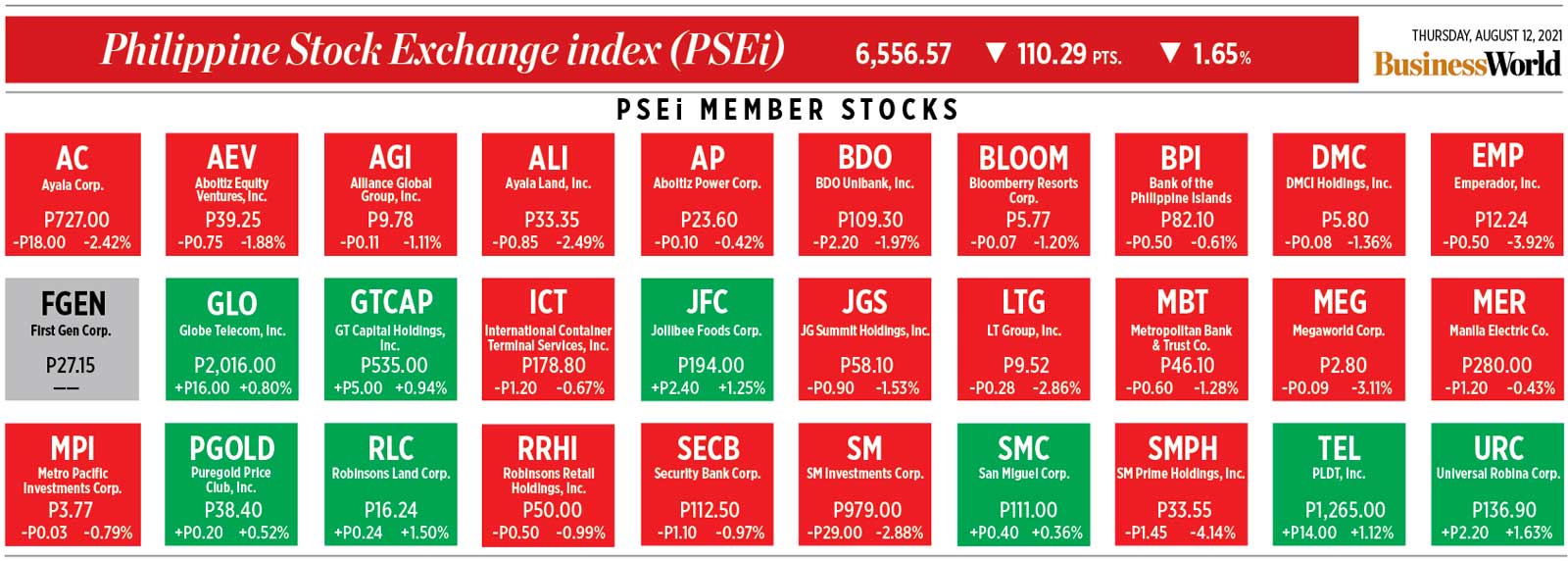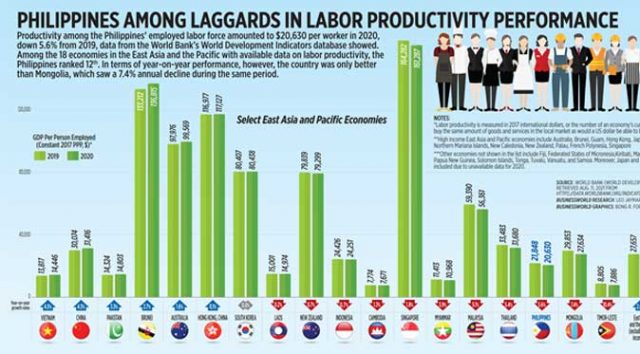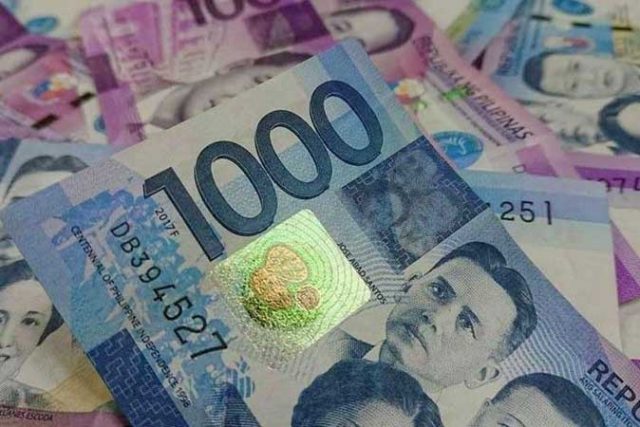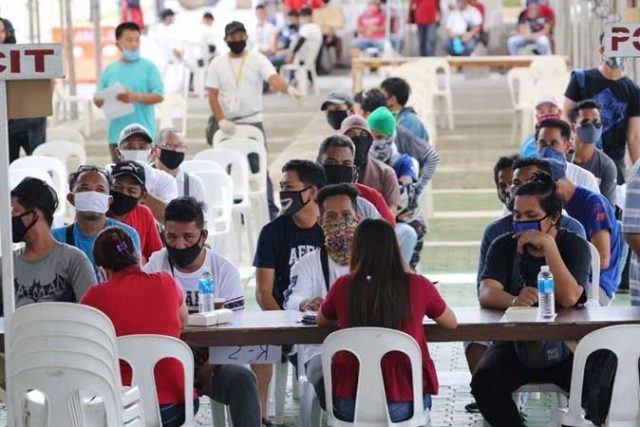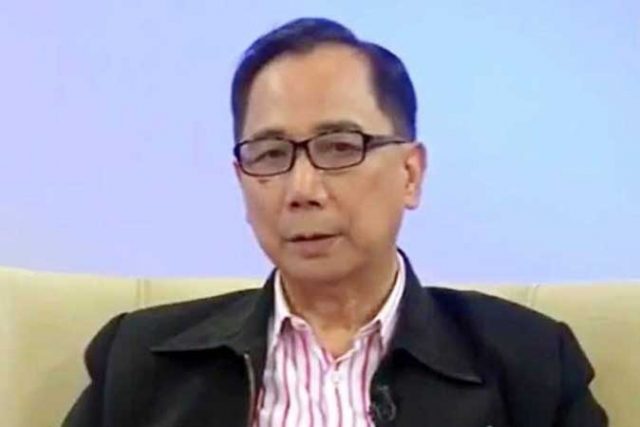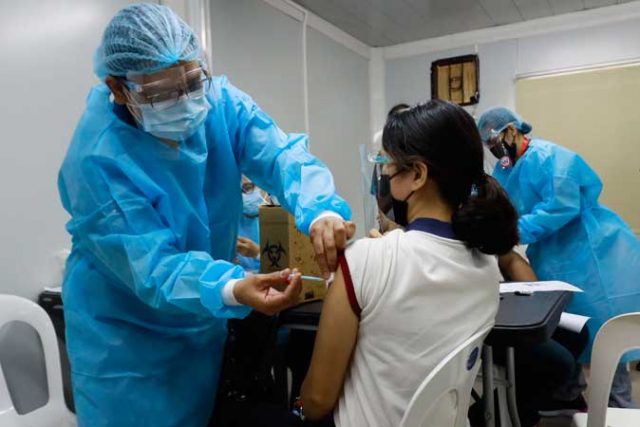Philippines among laggards in labor productivity performance
Productivity among the Philippines’ employed labor force amounted to $20,630 per worker in 2020, down 5.6% from 2019, data from the World Bank’s World Development Indicators database showed. Among the 18 economies in the East Asia and the Pacific with available data on labor productivity, the Philippines ranked 12th. In terms of year-on-year performance, however, the country was only better than Mongolia, which saw a 7.4% annual decline during the same period.
PSE index sinks on lockdown fears, rebalancing
PHILIPPINE shares sank on Thursday as the country’s coronavirus disease 2019 (COVID-19) situation affected sentiment and as investors adjusted their portfolios to prepare for the index’s rebalancing.
The Philippine Stock Exchange index (PSEi) shed 110.29 points or 1.65% to close at 6,556.57 on Thursday, while the broader all shares index went down by 51.68 points or 1.25% to end at 4,059.93.
“The local bourse plunged this Thursday… as COVID-19 cases in the country continue to surge,” Philstocks Financial, Inc. Senior Research Analyst Japhet Louis O. Tantiangco said in a Viber message.
“The surge in cases raises the risk of extending the strict quarantine measures implemented in selected areas in the Philippines, and expanding it to other areas. Trading weakened,” he added.
On Wednesday, the country logged 12,021 new infections, bringing the total to 1,688,040, Health department data showed. Active cases stood at 81,399.
“Philippine shares fell after the latest announcement of the MSCI rebalancing results influences active funds to make the necessary adjustments before the close of August,” Regina Capital Development Corp. Head of Sales Luis A. Limlingan said in a separate Viber message.
“[Others] decided to keep in cash ahead of the PSEi rebalancing,” Mr. Limlingan said.
The Philippine Stock Exchange recently conducted its regular review of the 30-member index and sectoral indices. As a result, AC Energy Corp. and Converge Information and Communications Technology Solutions, Inc. will be joining the benchmark index, replacing DMCI Holdings, Inc. and Emperador, Inc.
These changes will take effect on Monday, Aug. 16.
Majority of sectoral indices closed lower except for mining and oil, which gained 141.93 points or 1.47% to end at 9,781.80.
Meanwhile, property dropped 98.90 points or 3.13% to 3,055.03; holding firms shaved off 142.90 points or 2.14% to 6,529.01; financials went down by 18.51 points or 1.28% to finish at 1,419.40; industrials declined by 52.95 points or 0.56% to close at 9,328.30; and services inched down by 2.75 points or 0.17% to 1,614.28.
Value turnover tripled to P18.23 billion with 4.16 billion shares switching hands on Thursday, from the P6.83 billion with 1.82 billion issues logged the previous day.
Decliners outnumbered advancers, 133 against 66, while 51 names closed unchanged.
Net foreign buying slowed to P50 million on Thursday from the P513.87 million logged on Wednesday.
“The bourse may have also hit a technical resistance area around the 6,680 area,” Timson Securities, Inc. Trader Darren Blaine T. Pangan said in a separate Viber message.
“Support may be placed at the 6,270 level,” he added. — Keren Concepcion G. Valmonte
Peso slips ahead of BSP meeting
THE PESO inched down against the greenback on Thursday ahead of the central bank’s policy review.
The local unit ended at P50.39 per dollar, shedding one centavo from Wednesday’s close of P50.38, based on Bankers Association of the Philippines data.
The local currency opened the session at P50.35 versus the dollar. Its weakest point was at P50.46, while its intraday best was at P50.34 against the greenback.
Dollars traded on Thursday fell to $723.3 million from $896.6 million on Wednesday.
Rizal Commercial Banking Corp. Chief Economist Michael L. Ricafort said the peso ended weaker versus the greenback during the final trading hour ahead of the central bank’s rate-setting meeting later in the day.
A trader likewise said the peso weakened as investors were cautious ahead of the Monetary Board’s meeting.
The Bangko Sentral ng Pilipinas (BSP) kept benchmark interest rates steady for the six straight meeting on Thursday to support the economy’s recovery. The rate on the BSP’s overnight reverse repurchase facility was kept at 2%. The yields on the overnight deposit and lending facilities were also unchanged at 1.5% and 2.5%, respectively.
“Peso weaker after the latest decline in the local stock market, more dovish signals from most [US Federal Reserve] officials recently on possible tapering of Fed bond purchases as early as later this year after stronger US jobs data,” Mr. Ricafort added.
The Philippine Stock Exchange index fell by 110.29 points or 1.65% to close at 6,556.57 on Thursday, while the all shares index went down by 51.68 points or 1.25% to close at 4,059.93.
“The local currency might weaken [on Friday] after the central bank revised up its inflation projections citing various upward price pressures,” the trader added.
The trader expects the peso to move between P50.30 and P50.50 per dollar on Friday, while Mr. Ricafort gave a narrower forecast range of P50.35-50.45 against the greenback. — BML
More FDI seen needed to plug current account deficit by 2022
THE CURRENT account deficit is likely to widen starting in 2022, pressing home the need for reforms to attract more foreign direct investment (FDI) rather than more transitory forms of inflows, Fitch Solutions Country Risk and Industry Research said.
“Policymakers will have to manage the economy’s external financing needs over the long term, with a need for foreign direct investment (FDI) over ‘hot money’ inflows for economic stability,” it said in a note Thursday.
Hot money or foreign portfolio investment tends to enter and leave an economy with fewer constraints, unlike FDI, which results in the establishment of fixed assets, which are not easily abandoned.
Fitch Solutions said it expects the current account to remain in surplus this year equivalent to 1.3% of gross domestic product (GDP), much less than the 3.6% surplus last year. The thinning of the surplus this year will be due to the moderate recovery in import demand.
The central bank expects the current to post a $10-billion surplus this year, equivalent to 2.5% of GDP.
The current account was in surplus by $12.979 billion in 2020, a turnaround from the $3.047-billion deficit in 2019.
Last year’s surplus was the highest since at least 2005 mainly due to the import slump as restrictions hampered the movement of goods during the pandemic.
“However, as the economy gradually climbs back to pre-pandemic output levels in 2022, we anticipate the current account to slip back into deficit,” Fitch Solutions said.
“Over the coming years we forecast this deficit to widen as demand for goods imports rebound, driven in particular for a rising need for commodity imports as the country’s infrastructure needs to grow,” it added.
For 2021, the government is targeting infrastructure spending of P1.02 trillion. It expects spending on the sector of P1.29 trillion and P1.28 trillion in the next two years, respectively.
Remittance flows and exports could be offsetting factors. Fitch Solutions noted that how much exports will mitigate any deficits will depend on how industry is spurred by expected improvements in infrastructure and the effectiveness of reforms.
The report noted that remittances are expected to be buoyed by heightened demand for healthcare workers and caregivers for the elderly. It added that “high domestic unemployment rates” may also spur migration.
With the country likely to run a wider current account deficit due to imports for the infrastructure program, Fitch Solutions said the reliance on external financing will be greater. The report noted how the government is already pushing for reforms to relax foreign ownership restrictions and attract more FDI.
The amendments to the Public Service Act and the Foreign Investment Act are still pending in the Senate, while the Bicameral Conference Committee has not yet finalized the revised Retail Trade Liberalization Act. These bills are expected to drive foreign investment growth.
Meanwhile, Fitch Solutions noted the low level of foreign ownership in peso-denominated government bonds.
“Low foreign ownership of local-currency government bonds — at an estimated 2.9% as of end-2020, compared to 13.6% in Thailand and 9.7% in China — could increase over time, as the Philippines’ growth outperforms regional peers over the next decade,” it said.
Fitch Solutions on Wednesday reduced its GDP growth forecast for the Philippines this year to 4.2% from 5.3% previously. It said the emergence of more infectious coronavirus variants and muted consumption due to the Metro Manila lockdown could hinder the recovery. — Luz Wendy T. Noble
DENR orders release of non-environmentally acceptable product list
By Angelica Y. Yang, Reporter
THE ENVIRONMENT department has ordered the National Solid Waste Management Commission (NSWMC) and the Solid Waste Management Division to release the list of products deemed damaging to the environment.
Such items, known as non-environmentally acceptable products (NEAP) which will be banned in compliance with the Ecological Solid Waste Management Act of 2000.
“(The NSWMC Secretariat and Solid Waste Management Division are) hereby directed to publish the list of NEAP in two newspapers of national circulation and provide a copy of the NSWMC Resolution (declaring plastic soft drink straws and plastic coffee stirrers part of the NEAP) to the Office of the National Administrative Registry at the University of the Philippines Law Center for their information and appropriate action,” Department of Environment and Natural Resources (DENR) Undersecretary Benny D. Antiporda said in a letter obtained by BusinessWorld.
The letter also directed the two agencies to begin drafting the guidelines of the NEAP, including phase-out timelines, which must be issued “one year after” the release of the list.
Asked when the NEAP will be out, Mr. Antiporda said he is sure it will be released by next week.
“Within next week iyan, sigurado meron na iyan (I’m sure it will be out),” he told BusinessWorld via Viber.
He added that the Science department is still evaluating other possible products.
DENR Secretary Roy A. Cimatu chairs the NSWMC, while Mr. Antiporda serves as the commission’s alternate chairman.
Under the Ecological Solid Waste Management Act or Republic Act No. 9003, the NSWMC must prepare the NEAP within a year of the law’s enactment and provide yearly updates.
Non-government organizations have declared their intent to press charges against the NSWMC, DENR, and other government agencies over their “inaction” on the list.
“We are preparing the lawsuit. The NSWMC or the member agencies have not responded to the notice(s) to sue,” Oceana Vice-President Gloria Estenzo Ramos told BusinessWorld in an e-mail Thursday.
Political will is needed for the commission to perform its 20-year-old mandate, she added.
Duterte approves P3.9 billion in additional cash assistance for Bataan, Laguna, NCR
PRESIDENT RODRIGO R. Duterte approved an additional P3.873 billion for cash aid to poor families in the National Capital Region (NCR), Bataan and Laguna, which have been placed under the strictest lockdown settings, known as enhanced community quarantine (ECQ).
Budget Assistant Secretary Rolando U. Toledo said Thursday that “we just received this morning the approval of the President for the cash aid for Bataan and Laguna plus the additional cash aid for NCR.”
In a Viber message, Mr. Toledo said the Department of Budget and Management (DBM) is currently preparing the documents needed to release the funds from the Bureau of the Treasury to local government units (LGUs) which will distribute them.
In a separate interview at the Laging Handa briefing Thursday, Mr. Toledo said the DBM hopes to release the funds by Friday. The department will also issue a local budget circular to guide LGUs on how the funds should be used and distributed.
The government is set to distribute P1,000 per person or up to P4,000 per household to low-income families in areas under ECQ as relief to compensate for loss of livelihood while movement restrictions are in force.
Of the new money, an additional P368 million will be given to the NCR to augment the P10.894 billion previously released to the region to cover more affected families, Mr. Toledo said.
This will bring the financial aid set aside for the capital to P11.262 billion, which he said will be enough to cover the list of beneficiaries the LGUs used when they rolled out a similar cash aid program in April.
Of the remainder, Laguna will get P2.715 billion and Bataan P700 million.
The two provinces were also placed under ECQ on Aug. 6-15. The lockdown in the NCR runs between Aug. 6 and Aug. 20.
Budget Undersecretary Tina Rose Marie L. Canda has said that other areas under ECQ like Iloilo and Cagayan de Oro were given financial assistance by the Department of Social Welfare and Development last month.
While the regional Inter-Agency Task Force in the Cagayan Valley region agreed to place Tuguegarao City under ECQ for 10 days, the DBM’s Mr. Toledo said providing cash aid to the city is still being studied by the Office of the President.
“If the decision is final… the DBM will look for a potential source of funds to give out cash aid to the citizens of Tuguegarao City,” he said.
The government has been giving out cash handouts to low-income families affected by quarantine since the pandemic started last year. The last two rounds were in April, which was worth P23 billion. The first disbursement starting in April 2020 was worth P205 billion under the social amelioration program. — Beatrice M. Laforga
Imported liquor market forecast at P50 billion
THE MARKET for imported spirits in the Philippines has been estimated at up to P50 billion at retail prices by 2025, The Keepers Holdings, Inc. (KEEPRS) said, citing a global report.
The trend would imply a market share for imported spirits segment of about 35%, and a 14.9% compound annual growth rate (CAGR) between 2021 and 2025.
IWSR Drinks Market Analysis Ltd. expects the overall consumption of spirits in the Philippines to grow 5.2% on a CAGR basis during the period, while domestic spirits growth was estimated at 1.3%, KEEPRS said in a statement Thursday.
By retail value, consumption of spirits has grown to P116.3 billion in 2020 from P91.7 billion in 2017.
Spirits retail sales in 2020 rose 1.9%, while the overall alcohol beverage market declined 6.3%.
KEEPRS accounts for 74% of imported spirits by volume, and 66.9% by retail sales value.
“KEEPR anticipates that the forecasted growth in the imported spirits segment translates to direct growth opportunities for its business and operations,” the company said.
The largest distributor of imported spirits in the Philippines, KEEPRS said last month that it was keen on expanding its imported spirits portfolio.
Previously known as Da Vinci Capital Holdings, the Securities and Exchange Commission recently approved the name change for the Lucio L. Co-controlled company to The Keepers Holdings, Inc.
KEEPRS was formed after the acquisition of Montosco, Inc., Meritus Prime Distributions, Inc., and Premier Wine and Spirits, Inc. through a share-swap deal with Mr. Co’s other company, Cosco Capital, Inc. — Jenina P. Ibañez
‘Gap’ noted in ASEAN, European Union views on sustainability amid hopes for trade deal
THE EUROPEAN Union (EU) said differences with ASEAN on sustainability matters must be resolved as the two blocs seek to revive free trade talks, the EU Ambassador said, adding that “gaps” between the two sides must also be addressed in terms of government procurement policies.
The EU and the Association of Southeast Asian Nations (ASEAN) started talks on a free trade agreement (FTA) in 2007, pausing negotiations two years later, after which the EU pursued bilateral deals with individual ASEAN member-states.
“There is still a bit of an ambition gap between what we see as a region-to-region FTA and what ASEAN would have in mind, including on issues such as sustainability, including on issues such as government procurement and so on,” EU Ambassador to ASEAN Igor Driesmans said in a virtual event Thursday.
“I think if we want to make progress on this, we will need to try to close a little bit this ambition gap, and at the same time accelerate on our bilateral negotiations because these will obviously be the building blocks for a region-to-region FTA.”
The EU has FTAs with two ASEAN countries, Singapore and Vietnam.
Mr. Driesmans said that the EU is actively negotiating trade deals with a number of other ASEAN states.
“We continue to enhance this region-to-region engagement in trade and investment, including this possible region-to-region trade agreement. Actually, over the last couple of years, we’ve been exchanging… proposals on what is also called framework for a possible future region-to-region FTA.”
Kok Li Peng, Singapore Permanent Representative to ASEAN, said the regional FTA is still on the table.
“The road to one will be long. From Singapore’s experience negotiating our FTA with the EU, it is complex, but I think that the rewards are worth it,” she said.
“I think there’s renewed interest among EU member states and in the European Commission to look at this prospect carefully, especially since ASEAN concluded the Regional Comprehensive Economic Partnership last year.”
The Philippines has signed the Regional Comprehensive Economic Partnership (RCEP), a trade pact that includes China, Australia, New Zealand, Japan, South Korea and all 10 ASEAN members.
The first round of FTA negotiations between the Philippines and the EU was held in May 2016. An EU-ASEAN Business Sentiment Survey in 2019 said that enthusiasm from businesses on the potential trade deal has waned since talks stalled. — Jenina P. Ibañez
Agriculture dep’t forms anti-red tape committee
THE DEPARTMENT of Agriculture (DA) has formed a committee to deal with streamlining its processes in compliance with a government mandate across all agencies to reduce red tape.
Agriculture Secretary William D. Dar signed Special Order No. 576 on Aug. 11 creating the committee, adding that it will ensure the DA’s compliance with Republic Act No. 11032 or the Ease of Doing Business and Efficient Government Service Delivery Act and its implementing rules and regulations.
According to the special order, Undersecretary for Administration and Finance Roldan G. Gorgonio will chair the committee.
Mr. Dar said the committee will conduct a compliance cost analysis, time and motion studies, and evaluate areas of improvement for DA services.
He said the committee is also subject to a national policy on regulatory management systems to be issued by the Anti-Red Tape Authority (ARTA), which includes notifying ARTA of every creation, revision, and repeal of regulations, ordinances or other related issuances. The DA is also obliged to conduct post-implementation assessments of current regulations; prepare preliminary impact assessments; and produce a regulatory impact assessment.
It is also required to refer ARTA policy recommendations to the officials concerned and submit an inventory of all current regulations and issuances.
Mr. Dar also ordered the committee to guarantee effective information dissemination on ARTA-related training; register new regulations and issuances with the University of the Philippines Office of the National Administrative Register or the Official Gazette; create updated service standards; and periodically review and update the DA’s citizen’s charter.
He said the committee must also ensure DA compliance on the zero-contact policy and the prescribed processing times for applications, and to develop a client feedback mechanism and measure their satisfaction.
A further task is to establish a Public Assistance Complaints Desk or ARTA help desk to receive and address complaints, serve as the overall coordinating unit for the creation of an electronic business one-stop shop, and help in the dissemination of ARTA information materials for public use.
“All heads of DA regional field offices, bureaus, and attached agencies and corporations are hereby directed to create and designate a sub-committee on anti-red tape in their respective offices,” Mr. Dar said. — Revin Mikhael D. Ochave
Philippine COVID-19 infections top 1.7 million
By Kyle Aristophere T. Atienza, Reporter
CORONAVIRUS infections in the Philippines exceeded 1.7 million after the government reported 12,439 more cases on Thursday, the highest daily tally in more than four months.
The tally breached 12,000 for the second straight day, with 87,663 active cases, according to a Department of Health (DoH) bulletin.
The death toll rose to 29,539 after 165 more patients died, while recoveries increased by 6,090 to 1.59 million, it added.
Of the 87,663 active cases, 95.3% were mild, 1.2% did not show symptoms, 1.5% were severe, 1% were moderate and 0.9% were critical.
The agency said 116 duplicates had been removed from the tally, 108 of which were recoveries. Three recoveries were reclassified as active cases, while 85 recoveries were reclassified as deaths. Two laboratories did not submit data on Aug. 10.
DoH reported 177 more Delta coronavirus variant infections, bringing the total to 627. It said 173 patients have recovered, one died and three cases were still being verified.
The agency also said 102 more people have been infected with the Alpha coronavirus variant from Britain, bringing the total to 2,195.
There were now 2,421 cases of the Beta variant from South Africa after 59 more Filipinos got infected.
Meanwhile, the OCTA Research Group from the University of the Philippines said the virus reproduction number stood at 1.41.
Metro Manila’s reproduction number was 1.76, while the national positivity rate was 21%, it said in a report.
OCTA said Quezon City had 467 infections from Aug. 5 to 11, the highest among local governments.
Manila had 304 cases during the period, followed by Cebu City with 275, Makati with 195 and Davao City with 175.
Cebu City, Imus and Tuguegarao were at critical levels in terms of the average daily attack rate and intensive care unit (ICU) occupancy, OCTA Fellow Fredegusto P. David tweeted.
Metro Manila was placed under a two-week lockdown starting Aug. 6 amid a fresh surged in infections. The Health department has said the lockdown could get extended.
“The situation is more likely to get worse before it gets better,” Mr. David said.
‘IRRESPONSIBLE’
Also on Thursday, DoH condemned members of the health community who are spreading anti-vaccine sentiments.
This is “irresponsible, as the country continues to face the threat of the more infectious Delta variant,” DoH said in a statement.
Romeo Quijano, a retired professor from the University of the Philippines (UP) College of Medicine, told DZRH radio coronavirus vaccines are unsafe and more dangerous than the virus itself.
“It is likewise irresponsible for media outlets to allow such professionals to use their platforms to spread baseless information that stands to harm Filipinos, especially those who are in the process of deciding to get vaccinated,” DoH said.
A June 23-26 poll by Social Weather Stations (SWS) showed 45% of Filipinos were willing to get vaccinated against the coronavirus, 13% higher than the May 2021 result.
The state is “partly to blame” for the vaccine hesitancy, said Noreen H. Sapalo, a college lecturer on culture and politics and a graduate student of anthropology at UP.
“They have no clear risk communication plan or program,” she said in a Facebook Messenger chat.
“The low confidence and misunderstanding regarding vaccines are the cumulative result of decades of poor health promotion undertaken by the DoH,” said Gene A. Nisperos, a board member of the Community Medicine Development Foundation.
“For years, the department has neglected to do proper and large-scale health education, especially on the importance of preventive measures like vaccination,” he said in a Facebook Messenger chat.
“Even when the vaccination completion rates were already going down 10 years ago, the DoH failed to undertake aggressive health education and promotion,” he added.
Mr. Nisperos said the country’s experience with its dengue immunization program had worsened vaccine hesitancy.
“It was the fuse that was lit that led to the explosion so to speak, but the bomb was already there long before,” he said.
French drugmaker Sanofi Pasteur faced a lawsuit after several Filipino children died supposedly due to the side effects of its dengue vaccine sold under the brand name Dengvaxia.
The World Health Organization in 2017 said the dengue vaccine should not be given to people who have not been infected with the dengue virus.
“Now, all of these is coming back to bite us,” Mr. Nisperos said. “Yet the Duterte government and the DoH are not doing enough.
President Rodrigo R. Duterte’s threats of arresting vaccine decliners did not help, the medical doctor said.
Dismissing those who refuse to get inoculated would not address the problem, Mr. Nisperos said.
When asked at a televised news briefing last week whether the government has a program for vaccine decliners, presidential spokesman Herminio L. Roque, Jr. said in Filipino: “COVID-19 should take care of them.”
Ms. Sapalo said corruption allegations against the Health department are partly to blame for public distrust in the government’s pandemic response.
“There are so many factors to be considered when it comes to the anti-vax sentiment of the public,” she said. “We can also look at the general distrust of the public in the health system, which failed them at one point in their lives.”
In a report released on Wednesday, the Commission on Audit said it found deficiencies worth P67.3 billion in DoH’s funds.
The President would comment on state auditors’ findings once DoH responds to the accusations, his spokesman said.
Meanwhile, the office of Vice-President Maria Leonor “Leni” G. Robredo and Quezon City have tied up for a drive-thru coronavirus vaccination for transport and delivery workers.
The “vaccine express” was rolled out on Thursday, the Office of the Vice President (OVP) said in a statement. It will be open until Friday at the Robinsons Novaliches open parking.
About 26.13 million coronavirus vaccine doses have been given out as of Aug. 11, 14.1 million of which were first doses.
Manila mayor voted president of Aksyon Demokratiko party
A FORMER showbiz matinee idol who is now the mayor of Manila has been elected president of Aksyon Demokratiko.
Manila Mayor Francisco M. Domagoso was elected president of the party founded by the late Senator Raul S. Roco at a meeting on Aug. 10, party chairman Ernest M. Ramel, Jr. said in a statement on Thursday.
“Prior to his membership and eventual election as party president, Aksyon Demokratiko and Mayor Isko had a meeting of minds and hearts in many aspects,” he said.
Mr. Ramel said the party and Mr. Domagoso, who is believed to be running for president next year, agreed on several issues including on the coronavirus response and addressing joblessness during the pandemic.
“We also agreed on the rule of law, focusing on education, housing and health care,” he added.
The group said Pasig Mayor Victor Ma. Regis N. Sotto kept his post as executive vice president, while Concepcion, Tarlac Mayor Andres Lacson was elected vice chairman. Former National Youth Commission chairman Leon Flores III was elected secretary-general.
Senate President Vicente C. Sotto III, uncle of the Pasig mayor earlier said he would run for vice president at the elections next year in tandem with Senator Panfilo M. Lacson, his presidential mate.
Mr. Domagoso last week resigned as a member and vice chairman of the National Unity Party, which was formed by ex-party mates of former President Gloria Macapagal Arroyo, after it supported the possible presidential bid of Davao City Mayor Sara Dutere-Carpio, President Rodrigo R. Duterte’s daughter.
Mr. Duterte on Monday night mocked Mr. Domagoso who’s been doing well in election polls, for the alleged disorder at his city’s vaccination sites.
The tough-talking leader, alluding to Mr. Domagoso — also known by his screen name Isko Moreno — ridiculed him for his past as a sexy actor. He should not become Philippine President, he added.
Before his stint in showbusiness, Mr. Domagoso was a scavenger and pedicab driver in one of the most populated districts in the Philippine capital.
The mayor had done well in polls on voters’ preferences for presidential and vice-presidential candidates, placing second to Ms. Carpio and Mr. Duterte, who earlier said he might run for vice-president next year.
The President said he would strip the city of its power to distribute government cash aid for the alleged chaos.
Sought for comment, Mr. Domagoso instead shared a certificate issued by the Interior and Local Government department two months ago praising his performance in distributing cash aid.
In 2010, Aksyon Demokratiko endorsed the presidential bid of Mr. Duterte’s predecessor, the late Benigno S.C. Aquino III.
The party supported the 2016 presidential run of Senator Grace Poe-Llamanzares, who lost to Mr. Duterte.
The party, which was founded in 1997, became the vehicle of Mr. Roco for his presidential bid in the 1998 elections where he lost to Joseph Estrada.
Mr. Domagoso earlier said Manila’s vaccination registration site was attacked by bots a day before chaos ensued in the city’s vaccination hubs.
He said the cyber-attack could be part of a grand plan to discredit his leadership.
In a report, Manila City said the attack was meant to make it difficult for people to register for vaccination.
Mr. Domagoso traced the chaotic vaccinations in some of the capital’s inoculation sites to “agitators” sent by people with political motives. — Kyle Aristophere T. Atienza


